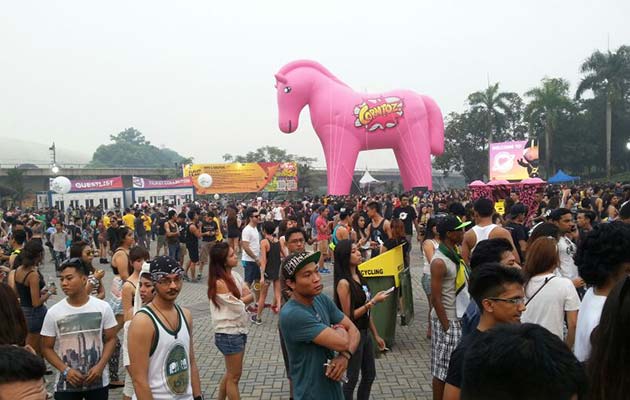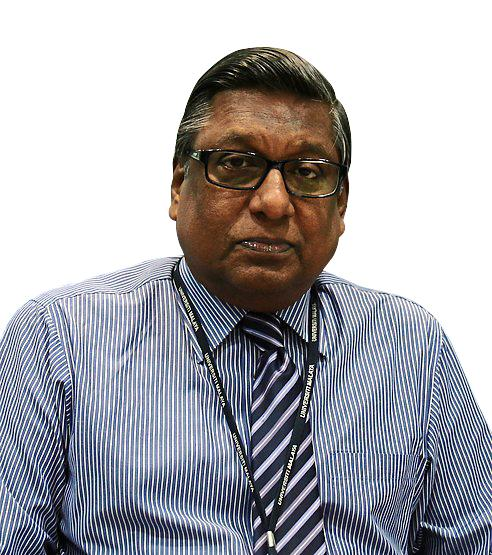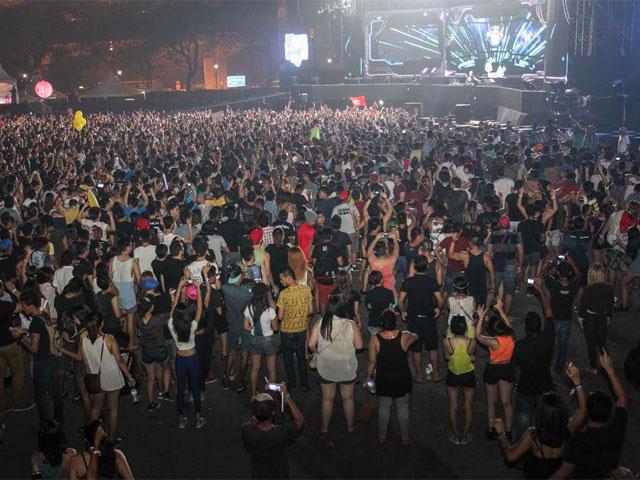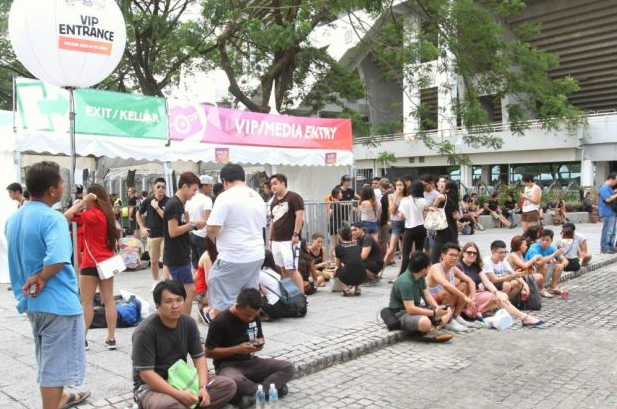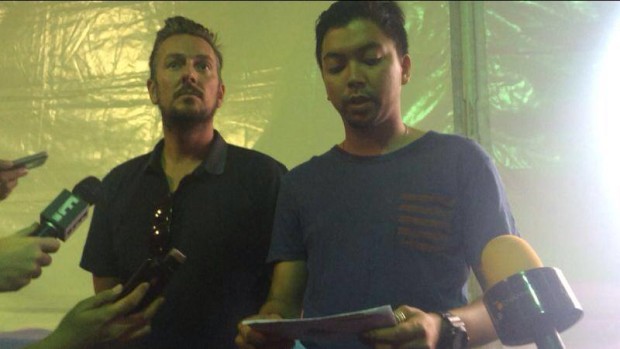#FMFA2014 Shocker: Deaths Were Actually Caused By Heatstroke, Not Drug Overdose
Even the concert organisers had no idea about the actual cause of death... until now.
For over a year, we've all been led to believe that the deaths of six concertgoers in FMFA 2014 were due to drug overdose. Following that, several music festivals and concerts have been cancelled by authorities due to fear of potential drug abuse at these events.
Shortly after news of the supposed drug-related deaths broke out, organisers of Life In Color Malaysia decided to cancel the "World's Largest Paint Party" while authorities in Pahang cancelled the license for the Kuantan Music Festival.
Most recently, Future Music Festival Asia (FMFA) 2015 in Singapore had to be called off due to "serious concerns" of potential drug abuse while Thirst 2015: We Are All Stardust was cancelled mere hours before it was scheduled to begin.
That's no longer the case. According to a report by The Star, post-mortem results have showed that the deaths were actually caused by heatstroke and not from taking large doses of drugs, as was implied by police statements.
Two out of the 16 who were brought to the hospital in critical condition had no trace of drugs in their system while the rest tested positive for MDMA, ketamine and morphine.
The post-mortem results were said to have been released two months after the deaths.
However, the authorities did not make the results known and continued to use the supposed drug-related deaths as a reason to cancel similar events, even after the pathologist involved in the case sent several detailed reports to correct police statements.
“Generally, the police did not show much interest in the reports. Unfortunately, they made statements without proper scientific reasons, which is not the right way. They should have spoken to us and encouraged an inquest into the case because it is a matter of public interest to prevent similar incidents,” University Malaya Medical Centre (UMMC) forensic pathology department head Prof Dr K. Nadesan told The Star.
thestar.com.myAccording to Dr. Nadesan, UMMC handled the autopsies for three of the dead and also treated nine others. He noted that two of the victims had no trace of drugs in their system while the rest tested positive for MDMA (ecstasy), ketamine and morphine - but not enough to kill them.
"I was surprised because when I came in, the impression created from the police announcement was that they had taken large doses of drugs. Even the clinicians at the trauma centre were under the impression that these people were heavily intoxicated with drugs and were treating them for overdose instead heatstroke," Dr. Nadesan said.
He said those who died tested positive for ecstasy or MDMA, but it was much lower than the average recreational level of 0.1 to 0.25 microgram per millilitre.
"The autopsy and clinical findings were not on par with drug overdose. The police had no grounds to say it was. It was a wrong assumption,” he said.
Dr. Nadesan ruled heatstroke to be the main cause of death after autopsies were done on the "virtually dried up" bodies, one of which had a temperature of 39°C. He further added that the hot weather, combined with the lack of fluids and physical overexertion on the victims' part might've led to the tragedy.
Dr Nadesan said the conditions during the second day of the festival – a combination of choking haze, high humidity and 35°C temperature – were the main causes of the tragedy. He said the stadium where they were from 10am to 1am, without sufficient fluids and dancing for hours, provided the conditions for heatstroke.
Dr Nadesan said some of the victims, especially those who taken MDMA, became uninhibited and overexerted themselves physically, causing their bodies to lose control in regulating temperatures.
The victims stopped sweating while their bodies experienced disseminated intravascular coagulopathy (DIVC) which causes internal haemorrhaging, blood clotting and lower oxygen delivery to organs.
“This led to multiple organ failures, a shutdown of the body,” he said.
Dr Nadesan said the drugs might have in some small way contributed to the deaths but they were not the main cause.
He felt the tragedy could have been averted had the organisers provided adequate access to water and information on how to stay healthy in the harsh weather.
Universiti Kebangsaan Malaysia Hospital (HUKM), which handled the autopsies for the remaining three victims, declined to reveal the post-mortem results.
However, KL Criminal Investigation Department chief Senior Asst Comm Datuk Zainuddin Ahmad has confirmed that the sudden death reports on the six deceased concertgoers lists heatstroke as the cause of death.
Meanwhile, FMFA's organisers expressed their surprise over Dr. Nadesan's revelations, as they have been kept in the dark over the six people's cause of deaths and their requests to view the victims' toxicology reports were denied
Iqbal Ameer (Director of Livescapeasia) & Brett Robinson (Festival Director of Future Music Festival) at FMFA 2014’s official press conference after the cancellation was announced.
Image via PopSpokenLivescape Group chief executive officer Muhammad Iqbal Ameer said all information about the deaths had been through verbal communication with the police.
"We were pretty much left in the dark. Until now, we have yet to know the contents of the investigation and toxicology reports," he said.
"We are very surprised by the pathologist’s revelations. For more than a year, we’ve been led to believe that the deaths were due to drug overdose."
Livescape CEO Muhammad Iqbal Ameer said that the incident and its relation to drug abuse has not only impacted the FMFA brand but also the local live events industry, adding that event organisers are hoping for better transparency and cooperation from the authorities in ensuring safety in such events
Iqbal said Livescape was not disputing the call made by the police in the interest of public safety, saying, "I believe what all event organisers want is better transparency and for the authorities to see the economic benefits of these events we are organising and to work together with us to ensure safe events."
“With how things are going now, no one wins. Will the fans be able to see another music festival take place in Malaysia? Could huge financial losses to other event organisers due to last-minute cancellations or objections be avoided? And more importantly, could lives have been saved if transparent and accurate information was released in the first place?” he asked.
When asked if Livescape was considering legal action, he said his company only wanted “answers and the truth”.
On Dr. Nadesan's remark on the lack of access to water at the festival, Iqbal clarified that there were sufficient measures in place to keep concertgoers healthy and hydrated in addition to adequate on-site medical assistance
He said the festival had adhered to an international event organising standard under the Code of Practice and Event Management Guide, adding that the organiser also had 34 paramedics, seven ambulances and an onsite emergency trauma centre.

